Georges Mouton
Count of Lobau
Pronunciation:
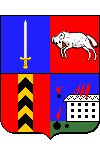
Georges Mouton was born on February 21, 1770 in Phalsbourg, Lorraine. His father was a baker.
He studied well, and in March 1792 was elected lieutenant by the volunteers of the 9th Meurthe battalion. He served in the Rhine army as aide-de-camp to General Jean-Baptiste Meynier, quickly earning his captain's stripes.
In 1795, he was assigned to the Army of Italy. Battalion commander in 1798, he moved to the General Staff as aide-de-camp to General Barthélemy-Catherine Joubert. After the battle of Novi, which cost Joubert his life on August 15, 1799, Mouton joined the staff of Jean-Etienne Championnet, then Andréa Masséna.
Under the orders of the future Duke of Rivoli, he was wounded during the blockade of Genoa on April 7, 1800, at Montefaccio, then, more seriously, during the attack on the fort of Quezzi, during which his bravery was noticed by Jean-de-Dieu Soult, who wrote to Napoleon Bonaparte: Il est difficile d'être plus brave (It's hard to be braver)
.
In fact, in 1800, the First Consul offered him a position as aide-de-camp on his staff, which Mouton refused, feeling that he was not cut out for the honors of the palace. Similarly, his republican feelings led him to say "No" to the 1802 plebiscite establishing the Consulate for life, and to disapprove of the pomp and ceremony of the coronation in December 1804. As can be imagined, these positions were not conducive to his advancement: he was only appointed colonel in 1803, and brigadier general in 1805.
However, the Emperor, aware of his merits, did him the honor of appointing him aide-de-camp, which Mouton wisely accepted this time.
In this position, he took part in the campaigns of Germany in 1805, Prussia in 1806 and Poland in 1807. During the latter, he was severely wounded at Friedland on April 14, 1807. His courage earned him his third divisional star a few months later.
In 1808, Mouton served in Spain under Jean-Baptiste Bessières, distinguishing himself in particular at Medina del Rio Seco and Gamonal by charging his men with bayonets and knives.
During the Austrian campaign of 1809, he repelled seven Austrian assaults at the Landshut bridge on April 21, before taking the town. This prompted the Emperor to say: Mon Mouton est un lion (My sheep is a lion)
.
A few weeks later came the Battle of Aspern-Essling. Mouton's exemplary behavior at the head of three fusiliers de la Garde battalions enabled the French army to retreat to the island of Lobau. A few days later, Napoleon I created him Count of Lobau for having repulsed the enemy seven times, thereby ensuring the glory of our arms
, as specified in the imperial decree. On July 5 and 6, at Wagram, although wounded in the hand at the start of hostilities, he honored his title with his usual courage.
Once the campaign was over, the Emperor entrusted the Comte de Lobau with the organization of the War Staff, a task he carried out with great skill until 1812.
Hostile to the plan for war with Russia - an opinion he expressed openly, with his usual frankness - he nevertheless took part in the campaign, and was part of the small group that returned to Paris with the Emperor when he retreated.
Mouton took part in the Saxony campaign of 1813 as Adjutant General of the Guard. He fought at Lützen, Bautzen and Dresden. He locked himself in the city, but had to surrender on November 12, 1813, and was taken prisoner by the Russians. He returned to France in May 1814, was made a Chevalier de Saint-Louis by King Louis XVIII in July, but was placed on inactive status by the monarch in September.
He returned to service during the Hundred Days, and took part in the battles of Ligny and Waterloo; the day after the latter, he was again taken prisoner while protecting the army's retreat.
The final return of Louis XVIII in 1815 forced him to remain in Belgium until the end of 1818, when he was again allowed to return to France.
In 1828, he was elected deputy for Meurthe, his native department, and took his place among the liberal opponents of Charles X's regime.
In July 1830, following the "July Revolution", Louis-Philippe I appointed him commander of the National Guard. In 1831, he was made Marshal of France, and elevated to the rank of Peer de France in 1833.
Georges Mouton, comte de Lobau, died on November 27, 1838 in Paris, and was buried at Les Invalides, in the governors' crypt of Saint-Louis cathedral.
"General Mouton, Count of Lobau" by Ary Scheffer (Dordrecht, Netherlands 1795 - Argenteuil 1858)
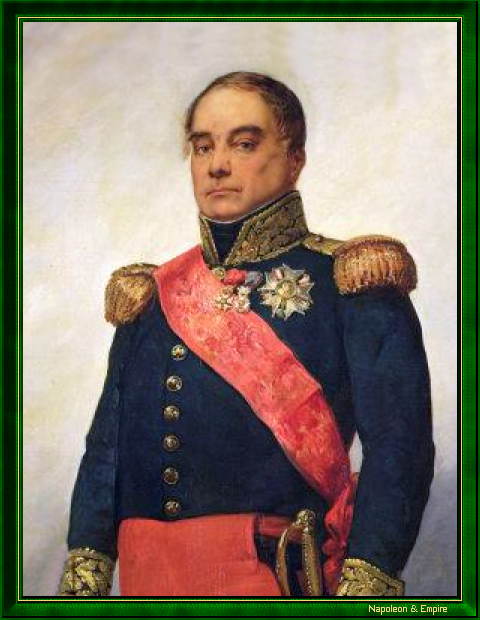
Mouton's name is inscribed on the 14th column (east pillar) of the Arc de Triomphe de l'Étoile .
Detailed military career
Combat wounds
At Montefaccio, during the blockade of Genoa, April 7, 1800
Seriously wounded during the attack on Fort Quezzi, also in Genoa
Wounded at Friedland, June 14, 1807
Wounded in the hand at Wagram, July 5, 1809
Captivity
Taken prisoner by the Russians during the capitulation of Dresden on November 12, 1813. Returned to France in May 1814.
Captured the day after Waterloo, June 19, 1815. Exiled, returned to Paris only at the end of 1818.
First engagement
Lieutenant of the Meurthe volunteers, 1792.
Career development
Captain, 1793
Brigade commander, May 26, 1798
Colonel, September 24, 1803
Brigadier General, February 1, 1805
Major General, October 5, 1807
Marshal of France, 1831
Service record
Army of the Rhine, 1793
Army of Italy, on Joubert's staff, 1795
99th demi-brigade of line infantry, May 26, 1798
3rd demi-brigade of line infantry, July 14, 1799
3rd line infantry regiment, September 24, 1803
Aide-de-camp to the Emperor, late 1805
Commanded an infantry division of the 2nd corps of the Spanish army, November 1807
Aide-de-camp to the Emperor again, late 1808
In the organization of the War Staff, autumn 1809
With the Grande Armée, Russian campaign in 1812
Adjutant General of the Guard, 1813
Commanded the VI Corps, part of the Armée du Nord, June 1815
Commanding General of the Paris National Guard, December 26, 1830
Remerciements
We express our gratitude to Major General Christian Baptiste, Director of the Army Museum, who granted us access to the Governors' Vault of the Saint-Louis des Invalides Cathedral, and to Mr. Mickaël Blasselle, who guided us for this visit in December 2011.Other portraits
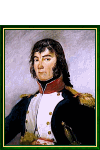
"Georges Mouton, Captain in 9th battalion of la Meurthe in 1792" by Vincent Nicolas Raverat (Moutiers-Saint-Jean 1801 - Paris 1865).
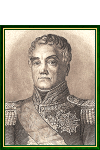
"Ge;néral Mouton, Count of Lobau".
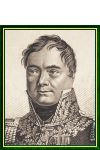
"Ge;néral Mouton, Count of Lobau".